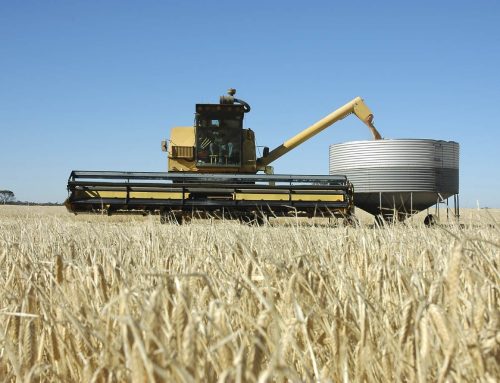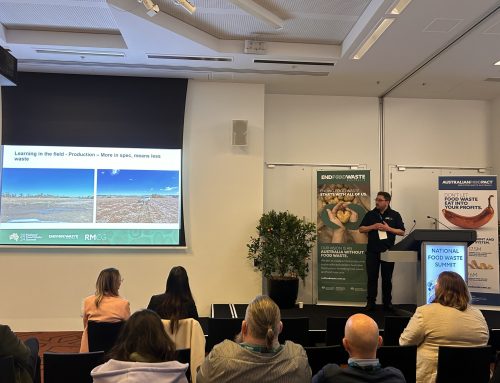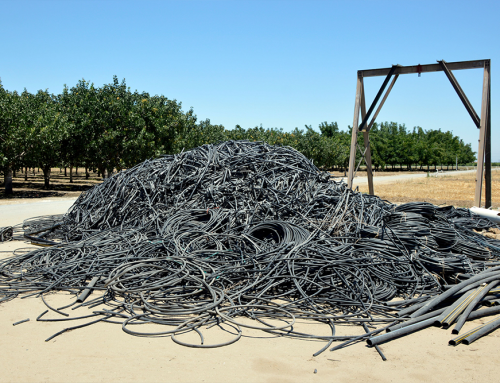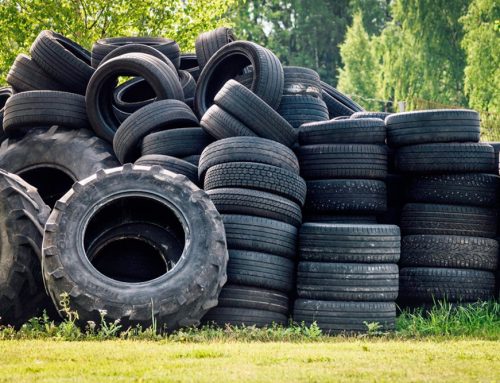By Anne-Maree Boland, RMCG Principal Consultant
From carbon emissions and water use to animal welfare and natural capital, the list of sustainability measures keeps growing for Australian farmers. But with the help of Australian researchers, innovators and solution providers, our farmers keep rising to the challenge. Waste management is the latest frontier – and we’re getting on the front foot.
A new report has found Australian farmers have a waste problem. Our agriculture, fisheries, and forestry industries generate 9.8 million tonnes of pre-farmgate waste every year – that’s about 10% per cent of Australia’s total waste that’s currently measured for commercial, municipal and construction sectors.
While around 70% of the 9.5 million tonnes of organic material is largely beneficially used on-farm, the reality is that problematic ag waste such as plastic mulch and drip tube or timber posts and tyres are stockpiled, burned, buried or sent to landfill.
Tipping the scales
The sector has set its sights on a low waste future, and it has tasked AgriFutures Australia to help. As principal consultant with RMCG, I’ve been working with AgriFutures on the sector’s first ever deep dive into the scale of the problem and the solutions that could change pre-farmgate waste management for the better.
We heard from passionate stakeholders across the ag and waste sectors, including rural Research and Development Corporations, the National Farmers’ Federation, AUSVEG, the Waste Management and Resource Recovery Association of Australia – plus individual farmers and researchers, recycling providers, and regulators.
Uniting them all was a strong commitment to tip the scales for the better.
So, why aren’t we?
By definition, waste is not something people want. For primary producers, that’s especially the case. Abandoned waste accumulates in paddocks, packing sheds and aboard vessels. It’s a messy, sometimes hazardous, reminder of a job not done.
But there are real barriers to pre-farmgate waste management: the cost and time of disposal, the hassle of collecting and transporting waste, and access to reuse and recycling options – especially those that will accept plastics contaminated with organic matter or soil.
To overcome these barriers we need scalable – adoptable – solutions.
60+ innovative ways to curb pre-farmgate waste
Our working group looked closely at 64 innovations that could be investigated – or are being implemented – to reduce pre-farmgate waste. Some are so obvious, you’d wonder why they aren’t commonplace. Like reusing plant pots, or replacing plastic tree guards with compostable ones.
Some solutions punch well above their weight on sustainability. Like creating power from almond waste. Or using seafood shells to regenerate reefs.
But one option could change the game entirely.
Embracing the wonky and wonderful
Around one-fifth of Australia’s fruit and vegetable produce is lost on-farm or in processing/ packing sheds every year. Pests and disease play a role, as do seasonal conditions, where bumper crops mean we produce more than retailers can sell. But in a world of filtered photographs and curated Instagram profiles, is it any wonder that the main cause is simply how food looks?
Whole crop purchasing offers an antidote. No more leaving wonky carrots to rot in paddocks; whole crop purchasing involves retailers or wholesalers buying the entire crop – and valorising the produce that’s out-of-spec.
It enables picture perfect produce to be sold to fresh food markets at premium prices, while lower grade produce could go to hospitality and foodservice industries – or as ‘imperfect’ value buys at the supermarket. Any produce unsuitable for these markets could be ‘upcycled’ into value-added products such as juices by processing partners.
Such partners already exist, like Nick Stamatiou from Whole – whose enhanced nutrient extraction technology is turning the traditionally wasted parts of fresh fruit and veg into value-added wholefood ingredients.
UK food giant, Tesco, is proving that whole crop purchasing can work at scale. In addition to retailing its “Perfectly Imperfect” fruit and veg, Tesco’s ready-made meal brand uses lower grade produce in its convenience meals, where food processing renders only the taste important.
By valuing waste, they’re redefining it, keeping edible food out of landfill, putting more money in farmers’ pockets, and diversifying their markets. If Tesco can do it, why can’t our supermarkets?
They’ve started whetting our appetite for wonky produce – with curly cucumbers, carrots with ‘legs’, and harlequin capsicums that can’t decide if they’re red or green. But how fantastic would it be to see them embrace whole crop purchasing and match the industry’s enthusiasm for innovative, collaborative solutions that cut pre-farmgate waste?
And while they’re at it, deliver a more sustainable, food secure future for tomorrow.
Click to read all the findings from the Pre-Farm Gate Waste Program here.





